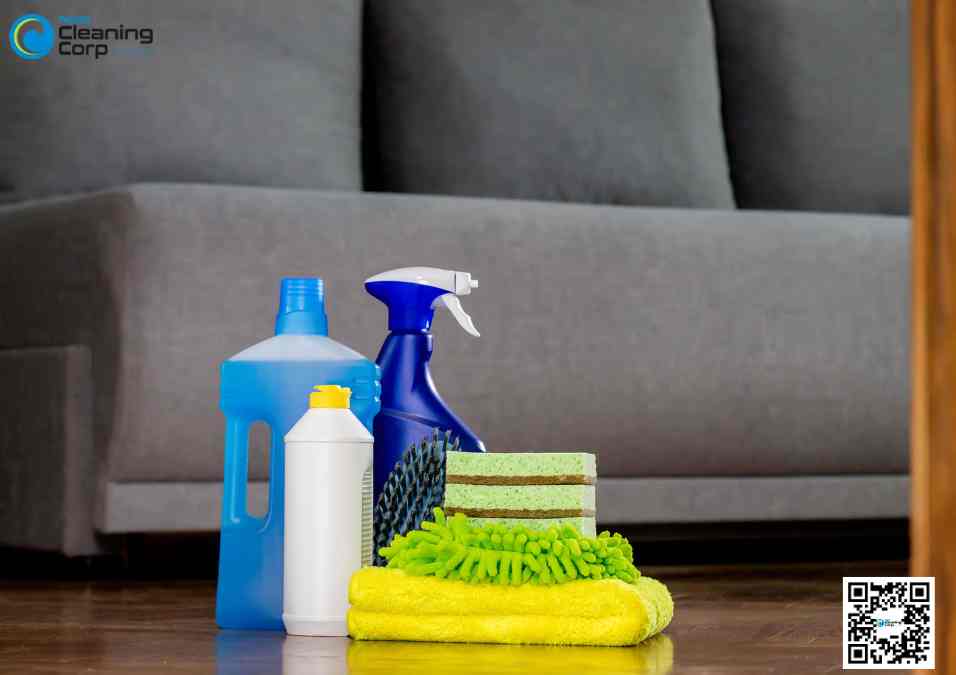Does the NDIS Fund Cleaning Services?
Yes. The NDIS does fund cleaning services — but it...
NDIS cleaning services play a crucial role in promoting health and well-being by significantly reducing allergens in the living environments of individuals with disabilities. These services are designed to create cleaner, healthier spaces, enhancing the quality of life for NDIS participants.
The National Disability Insurance Scheme (NDIS) is an Australian government initiative that provides financial support and resources for individuals with disabilities. The NDIS offers a range of living supports, which include assistance with daily tasks, healthcare services, and access to specialized providers. The scheme aims to empower participants by enabling them to lead more independent lives while receiving the necessary care and support tailored to their unique needs.
A clean living environment is essential for everyone, but it becomes even more critical for NDIS participants residing in supported accommodation. Many individuals with disabilities have heightened sensitivities to allergens, which can exacerbate health issues. Common allergens found in homes—such as dust mites, pet dander, and mold—can lead to respiratory problems, skin irritations, and other health complications.
Research conducted by the Asthma and Allergy Foundation of America indicates that approximately 50 million Americans suffer from allergies each year, with airborne allergens being a significant contributor. This statistic underscores the need for effective cleaning practices in environments where vulnerable individuals reside. Moreover, according to the Australian Institute of Health and Welfare, poor indoor air quality can lead to increased hospital admissions for respiratory conditions, especially among those with pre-existing health issues.

NDIS cleaning services utilize a variety of deep cleaning methods that are essential for significantly reducing allergens in homes.
Professional-grade equipment plays a vital role in these methods.
High-efficiency particulate air (HEPA) filters are commonly used in vacuums and air purifiers to capture 99.97% of particles as small as 0.3 microns, including dust mites, pollen, and pet dander.
Research conducted by the American Lung Association shows that regular use of HEPA filtration systems can lead to a 30% improvement in indoor air quality over time.
Moreover, NDIS cleaning services often implement steam cleaning techniques for carpets and upholstery.
Steam cleaning not only removes dirt and allergens but also sanitizes surfaces, reducing the presence of harmful bacteria and mold.
A study from the Journal of Environmental Health indicates that steam cleaning can eliminate up to 99% of common household allergens.
The benefits of maintaining a clean home extend beyond aesthetics, directly supporting the health of residents, particularly those with disabilities.
For instance, individuals with asthma or allergies can experience a 50% reduction in symptoms when living in a well-maintained environment.
By employing thorough deep cleaning methods, NDIS services provide a pathway to better health outcomes and improved air quality.
Routine cleaning is critical in preventing allergen buildup and enhancing air quality in NDIS homes.
Regular maintenance tasks such as dusting, vacuuming, and mopping not only help maintain cleanliness but also minimize the accumulation of dust, allergens, and other pollutants.
According to the Environmental Protection Agency (EPA), indoor air can be up to 5 times more polluted than outdoor air, making regular cleaning essential for creating a healthier living space.
A case study involving a household that consistently utilized NDIS home cleaning services reveals significant improvements in air quality.
After implementing a routine cleaning schedule, the family reported a 40% decrease in respiratory issues over six months.
The cleaning team, following NDIS standards, conducted regular assessments to adapt cleaning strategies based on the family’s specific needs, ensuring that the unique challenges posed by allergens were effectively addressed.
NDIS cleaning services encompass a variety of tasks that align with the NDIS plan framework.
These services include basic house cleaning, deep cleaning, and specialized cleaning tailored to meet the unique needs of participants.
According to the NDIS Commission, services such as dusting, vacuuming, mopping floors, cleaning bathrooms, and sanitizing kitchens fall within the scope of covered cleaning tasks.
Furthermore, these cleaning tasks are categorized under living supports, which aim to assist individuals with disabilities in maintaining a clean and healthy home environment.
For example, a participant may request regular weekly cleaning sessions to ensure their home remains free from allergens and contaminants, promoting their overall health and well-being.
NDIS providers utilize specific cleaning techniques and approaches designed to effectively target allergens present in homes.
These methods include the use of professional-grade equipment such as HEPA filter vacuums and air purifiers, which capture allergens like dust mites, pet dander, and mold spores.
Additionally, cleaning teams are trained to implement specialized cleaning protocols that include steam cleaning carpets and upholstery, which can eliminate up to 99% of allergens.
A study by the American College of Allergy, Asthma & Immunology indicated that homes with regular cleaning intervention saw a 45% reduction in airborne allergens, demonstrating the effectiveness of these specialized techniques.
By employing these methods, NDIS cleaning services ensure that participants can enjoy a cleaner and healthier living environment, addressing their unique challenges and needs.
Eligibility criteria for accessing NDIS cleaning services vary based on individual needs and circumstances.
Participants must have a current NDIS plan that includes funding for cleaning services, typically categorized under support coordination or daily living supports.
According to the NDIS Practice Standards, individuals with disabilities who require assistance with daily tasks may qualify for these services.
For example, a participant with asthma may include cleaning services in their NDIS plan to help manage allergens and improve air quality in their home.
To access these services, participants should consult with their support coordinator to explore available options and ensure that their unique needs are met.
During an NDIS cleaning appointment, participants can expect a structured and professional cleaning process tailored to their specific needs.
Disability support workers will arrive at the scheduled time equipped with necessary cleaning supplies and tools.
The process typically begins with a brief consultation to review the cleaning plan and any particular areas of focus, such as high-traffic zones or allergen hotspots.
Support workers will perform tasks such as dusting, vacuuming, and sanitizing surfaces while adhering to NDIS standards for quality and safety.
A follow-up discussion often occurs at the end of the appointment to assess the effectiveness of the cleaning and to make adjustments for future sessions, ensuring that participants receive the best possible service.
In summary, NDIS cleaning services play a crucial role in reducing allergens and improving air quality for individuals with disabilities.
By providing tailored cleaning solutions that target specific needs, these services not only create a healthier living environment but also enhance the overall well-being of NDIS participants.
Maintaining a clean home is essential for promoting good health and comfort, especially for those facing unique challenges.Considering NDIS cleaning services can significantly contribute to a better quality of life, making them a valuable option for those seeking to improve air quality and health in their homes.

Yes. The NDIS does fund cleaning services — but it...

Alright, let’s get straight into it. These are the questions...

NDIS cleaning services are specifically designed to cater to the...

The role of professional cleaning in maintaining a safe and...

Studies consistently show that living in a clutter-free, organized space...